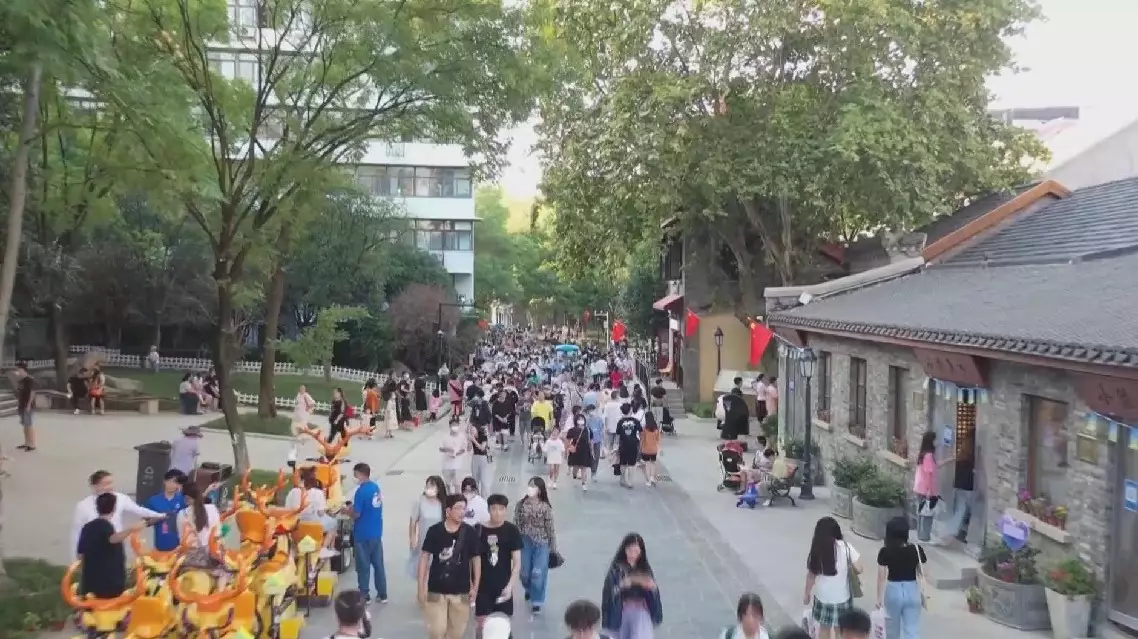During the five-day May Day holiday from May 1 to May 5, travel destinations in lower-tier markets achieve a substantial surge in popularity, with improved infrastructure and enhanced hospitality capabilities.
Data from Ctrip, China's leading online travel agency, showed that hotel bookings and scenic spot ticket orders in county-level markets soared 68 percent and 151 percent respectively during the holiday, which ended on Sunday.
The smaller and county-level cities of Tumushuke, Baoshan, Huaihua, Chifeng, Hetian and Heze saw a sharp increase in air ticket bookings.
The tourism boom in these markets is attributed to the great improvement of infrastructure facilities in rural areas and the development of characteristic towns, according to experts.
"The rural service level along highways is constantly improving. The construction of service stations along highways, the improvement of environment and the upgrading of parking lots and charging facilities have all provided a strong support for the industrial development along highways," said Liu Dongmei, deputy director of the big data industry research and development center of the Research Institute of Highway under the Ministry of Transport.
To attract tourists, the county-level authorities have launched many entertainment activities and programs with local uniqueness.
In the suburb of Shanwei City in south China's Guangdong Province, folk artists performed kylin (a mythical creature in Chinese legend) dance to welcome tourists from far away.
"The performance is fantastic and full of traditional cultural elements," said a tourist while watching the kylin dance.
In Chengjiang City in southwest China's Yunnan Province, local villagers performed the grass lion dance to entertain tourists. The lion is made of grass and tree branches.
"This is the first time I've seen the grass lion dance. It's a novel experience to me because I've never seen it anywhere else," said a tourist named Shen Qi.
Meanwhile, in Nanjing City of east China's Jiangsu Province, many people spent the holiday in the countryside, where they could not only enjoy beautiful scenery, but taste the delicacies made by local farmers.
"The tofu made in this way tastes more delicious. It reminds me of my childhood," said a tourist surnamed Zhu.
Pingliang City in northwest China's Gansu Province is home to the Kongtong Mountain – a national 5A-level tourist attraction.
Many villages in the city have further tapped into their abundant natural resources to offer tourists with new traveling experience.
Xigou Village launched activities such as outdoor camping, gliding, and horse riding to entertain tourists. Haizhaigou Village has built a magnificent glass skywalk extending more than 600 meters and with an altitude of about 100 meters. Sigou Village has turned cave dwellings (unique houses commonly seen in northwest China) into restaurants and launched activities such as fruit and vegetable picking for tourists.
"This place is near the Kongtong Mountain and boasts water and other natural resources. I feel quite free with the breeze blowing on my face," said a tourist named Sun Cheng.

China sees tourism boom in county-level markets during May-day holiday









